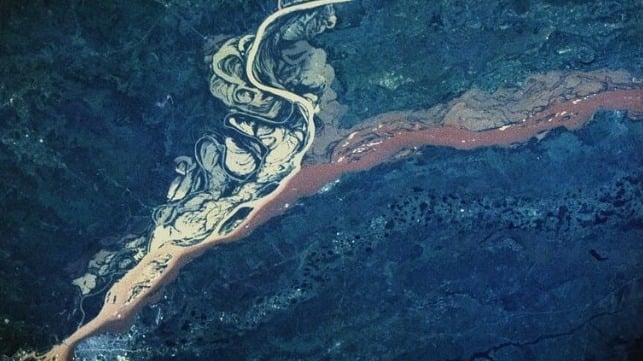Controversy Swirls Around Argentina’s Giant Waterway Privatization Plan
[By Jorgelina Hiba]
The waterway formed by the Paraguay and Paraná rivers is one of the world’s longest and most biodiverse river corridors, extending more than 3,400 kilometres from its source in southern Brazil, through Paraguay, and into Argentina to reach the Río de la Plata estuary.
For Argentina, it is also a vital route through which most of the country’s foreign trade flows. The country’s section of this natural channel – also known as Hidrovía, after the company that held its dredging and signalling concession from the mid-1990s until 2021 – enables around 80% of its exports, mainly of agro-industrial origin, to reach the rest of the world.
But the waterway is currently in the midst of a contentious process to privatise its management and enable works along its route, launched by the administration of President Javier Milei. In November, it opened a call for tender for a concessionaire to undertake a 30-year contract for the waterway’s “modernisation, expansion, operation and maintenance”, in a process that will be open until the end of February, and that has so far seen interest registered by European and Chinese companies.
However, the call for tender has generated fierce opposition from several interested business entities, who claim the government is favouring a single company: Belgian dredging firm Jan De Nul, which, as a joint partner in Hidrovía, held the concession until 2021, after which management returned to state administration.
Additionally, some aspects of the call for tender, namely works to widen and deepen channels along the Paraná, have come under fire from environmental organisations, who have warned about the possible environmental impacts of such works. They say that further dredging of the river could damage the surrounding wetland ecosystem that provides many ecosystemic benefits, ranging from water purification to climate change mitigation, while worsening the unprecedented water deficits it has been experiencing for the last five years.
More works, more depth
Since the end of 2021, the management of the most intensively navigated stretch of the Paraná has been without a concessionaire. Through the current call for tender, the government is looking for an operator to provide works and technology to expand the operational capacity of waterway navigation and boost the competitiveness of the Argentine economy.
To this end, the tender documents require the winning company to “modernise” the waterway not only by increasing its depth, but also through providing radars and…
CONTINUE READING THE ARTICLE FROM The Maritime Executive HERE


Comments are closed, but trackbacks and pingbacks are open.